-
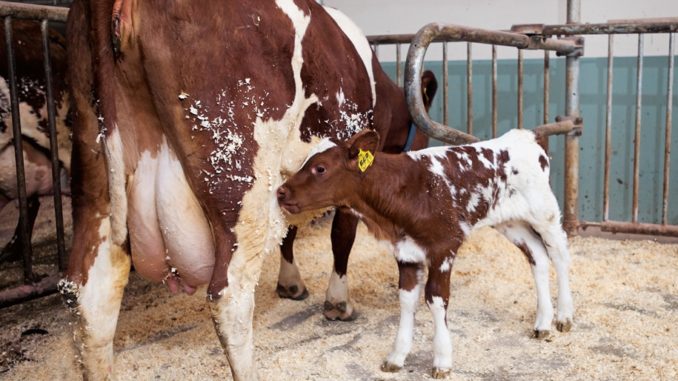 Latest from EU Member States
Latest from EU Member States#MilkCrisis | Lessons from France’s Organic Dairy Sector
The organic dairy sector in France has significant differences – but also some commonalities – with the conventional dairy sector. Rising consumer demand, producer organisations, and regional feed crop supply are among the differences – [...] -
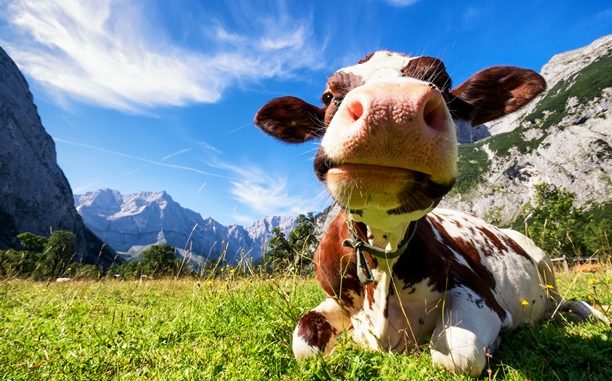 Main stories
Main stories#MilkCrisis | Alan Matthews on Voluntary Milk Supply Reduction Scheme
In his second contribution to this #MilkCrisis debate, Alan Matthews considers contributions thus far and also the recent development of EU-wide voluntary reductions as part of a €500 million package. […] -
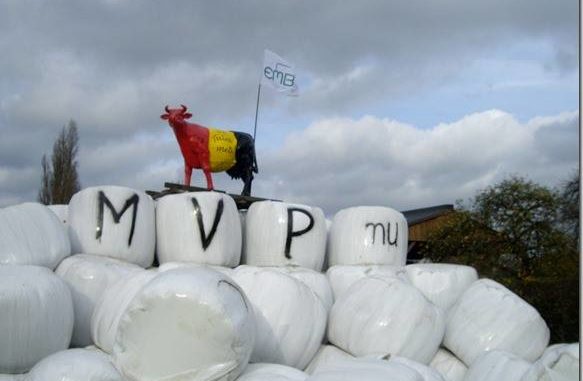 Main stories
Main stories#MilkCrisis | EMB: Address Overproduction to End Dairy Crisis
Silvia Däberitz, managing director with the European Milk Board, gives us their second article in our #MilkCrisis debate. In this she critiques some of the suggestions so far for dealing with the crisis, while emphasising [...] -
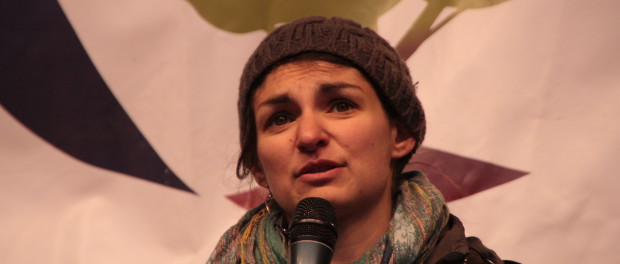 Main stories
Main storiesAurélie Trouvé | EU must regulate milk volume #MilkCrisis
Continuing with our #MilkCrisis debate series, this interview with Aurélie Trouvé, agricultural economist, focuses on the voluntary market control measures announced in March. Trouvé also uses this interview to deal with broader issues of voluntary [...] -
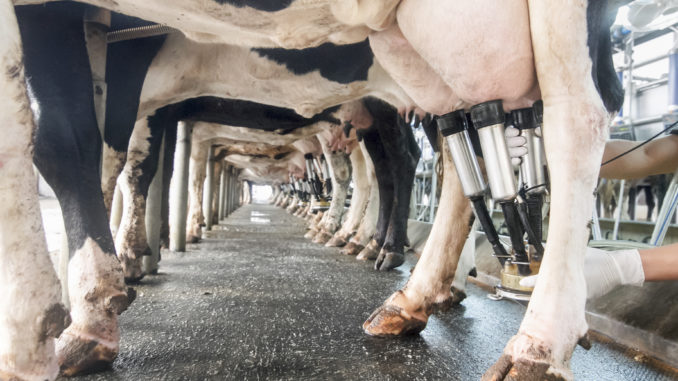 Main stories
Main stories#MilkCrisis | Alan Matthews: milk supply management no solution to current price problems
In the third in our milk crisis and farm income debate series, Alan Matthews suggests that supply management is not the way to improve price and income. […]
#MilkCrisis debate
-
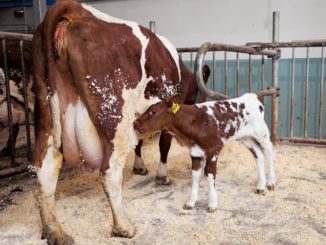 The organic dairy sector in France has significant differences – but also some commonalities – with the conventional dairy sector. Rising consumer demand, producer organisations, and regional feed crop supply are among the differences – [...]
The organic dairy sector in France has significant differences – but also some commonalities – with the conventional dairy sector. Rising consumer demand, producer organisations, and regional feed crop supply are among the differences – [...] -
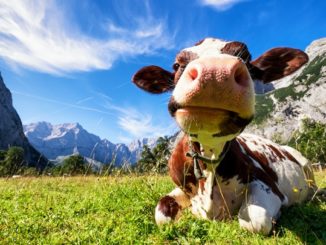 In his second contribution to this #MilkCrisis debate, Alan Matthews considers contributions thus far and also the recent development of EU-wide voluntary reductions as part of a €500 million package. […]
In his second contribution to this #MilkCrisis debate, Alan Matthews considers contributions thus far and also the recent development of EU-wide voluntary reductions as part of a €500 million package. […] -
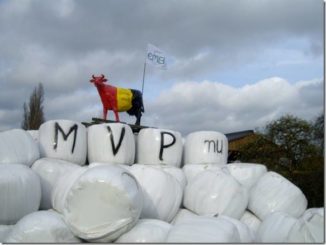 Silvia Däberitz, managing director with the European Milk Board, gives us their second article in our #MilkCrisis debate. In this she critiques some of the suggestions so far for dealing with the crisis, while emphasising [...]
Silvia Däberitz, managing director with the European Milk Board, gives us their second article in our #MilkCrisis debate. In this she critiques some of the suggestions so far for dealing with the crisis, while emphasising [...] -
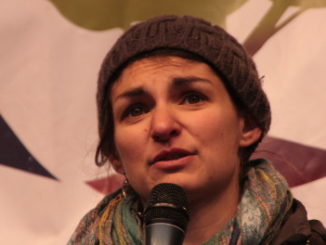 Continuing with our #MilkCrisis debate series, this interview with Aurélie Trouvé, agricultural economist, focuses on the voluntary market control measures announced in March. Trouvé also uses this interview to deal with broader issues of voluntary [...]
Continuing with our #MilkCrisis debate series, this interview with Aurélie Trouvé, agricultural economist, focuses on the voluntary market control measures announced in March. Trouvé also uses this interview to deal with broader issues of voluntary [...] -
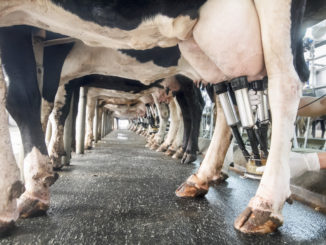 In the third in our milk crisis and farm income debate series, Alan Matthews suggests that supply management is not the way to improve price and income. […]
In the third in our milk crisis and farm income debate series, Alan Matthews suggests that supply management is not the way to improve price and income. […] -
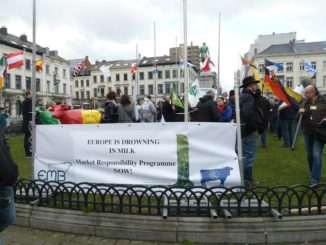 In the second installment of our farm income and diary crisis debate, Silvia Däberitz, managing director of the European Milk Board (EMB) tells us about how a Market Responsibility Programme could work. […]
In the second installment of our farm income and diary crisis debate, Silvia Däberitz, managing director of the European Milk Board (EMB) tells us about how a Market Responsibility Programme could work. […] -
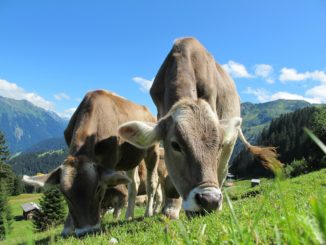 ARC2020’s next debate will be on the collapse in farm incomes, including in particular the milk price collapse. The causes, the consequences and most importantly the ways out of the current untenable situation will be [...]
ARC2020’s next debate will be on the collapse in farm incomes, including in particular the milk price collapse. The causes, the consequences and most importantly the ways out of the current untenable situation will be [...]
More on the #MilkCrisis
-
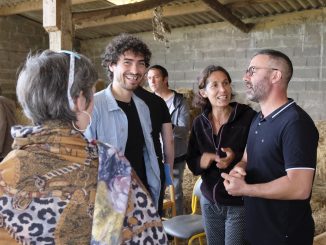 What happens when a farm invites the wider community to collectively tease out its future? In September ARC2020 visited Brittany to find out. Seed savers, farm workers and chefs sat down with elected officials and [...]
What happens when a farm invites the wider community to collectively tease out its future? In September ARC2020 visited Brittany to find out. Seed savers, farm workers and chefs sat down with elected officials and [...] -
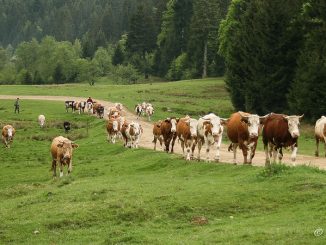 In Transylvania villages, families will often own a cow or two. The day begins with neighbours taking turns to usher the cows out to the common meadows around the village, where they graze on tasty [...]
In Transylvania villages, families will often own a cow or two. The day begins with neighbours taking turns to usher the cows out to the common meadows around the village, where they graze on tasty [...] -
 With EU CAP trilogue negotiations entering a critical, final phase, the Irish Department of Agriculture, Food, and the Marine has published the results of a modelling analysis on its official website. This analysis, published in [...]
With EU CAP trilogue negotiations entering a critical, final phase, the Irish Department of Agriculture, Food, and the Marine has published the results of a modelling analysis on its official website. This analysis, published in [...] -
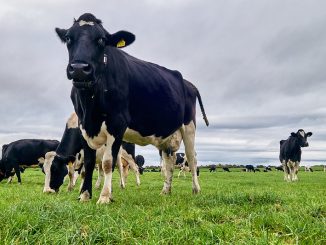 Ireland’s Environmental Pillar – the country’s leading coalition of environmental NGOs – today withdrew from the Department of Agriculture’s Agri-Food Strategy Committee after concluding that the draft Strategy is “woefully inadequate to meet the social [...]
Ireland’s Environmental Pillar – the country’s leading coalition of environmental NGOs – today withdrew from the Department of Agriculture’s Agri-Food Strategy Committee after concluding that the draft Strategy is “woefully inadequate to meet the social [...] -
 It remains unclear how EU-member states with powerful dairy industries will take into account the interests of farming communities outside Europe. While the instruments of which the CAP is comprised focus on the primary production [...]
It remains unclear how EU-member states with powerful dairy industries will take into account the interests of farming communities outside Europe. While the instruments of which the CAP is comprised focus on the primary production [...] -
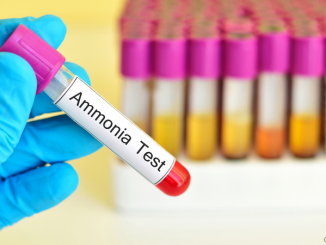 In Ireland, dangerous levels of ammonia emissions are driven largely by the burgeoning cattle population. Yet policymakers are turning a blind eye to the link between ammonia pollution and the expanding national herd. The evidence [...]
In Ireland, dangerous levels of ammonia emissions are driven largely by the burgeoning cattle population. Yet policymakers are turning a blind eye to the link between ammonia pollution and the expanding national herd. The evidence [...] -
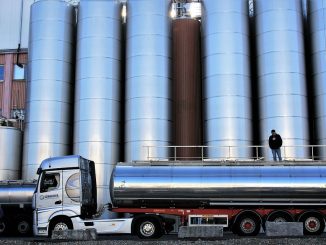 The detrimental impact of the EU Common Agricultural Policy (CAP) in developing countries has long been scrutinized by activists, political groups and developmental organizations. But professor Alan Matthews warns in this interview the CAP is [...]
The detrimental impact of the EU Common Agricultural Policy (CAP) in developing countries has long been scrutinized by activists, political groups and developmental organizations. But professor Alan Matthews warns in this interview the CAP is [...] -
 Big Dairy’s greenhouse gas emissions are increasing, but the corporations responsible are not being held to account. Meanwhile consolidation in the dairy industry is squeezing smaller operators and hurting rural communities. It’s time to hold [...]
Big Dairy’s greenhouse gas emissions are increasing, but the corporations responsible are not being held to account. Meanwhile consolidation in the dairy industry is squeezing smaller operators and hurting rural communities. It’s time to hold [...] -
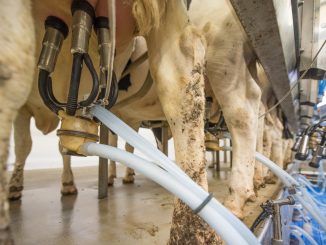 The EU Commission announced today private storage aid for meat and dairy, flexibility for market support programmes in wine, fruits and vegetables, olive oil, apiculture and the EU’s school scheme (milk, fruits and vegetables) and derogation from [...]
The EU Commission announced today private storage aid for meat and dairy, flexibility for market support programmes in wine, fruits and vegetables, olive oil, apiculture and the EU’s school scheme (milk, fruits and vegetables) and derogation from [...] -
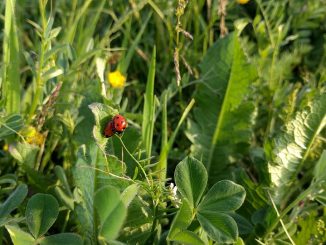 Healthy ecosystems are the foundation for food production, but they are pushed to breaking point by the current system. In the face of existential threats, Farm to Fork needs a coherent vision. Friends of the [...]
Healthy ecosystems are the foundation for food production, but they are pushed to breaking point by the current system. In the face of existential threats, Farm to Fork needs a coherent vision. Friends of the [...] -
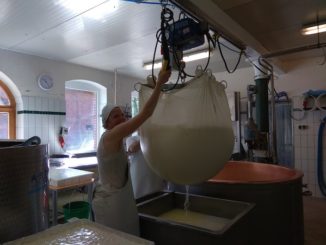 ” I could analyze Big Data sets, linking changes in the physical landscape to natural and cultural processes, but how on earth a farmer knows where, when and what to plant remained a mystery. ” [...]
” I could analyze Big Data sets, linking changes in the physical landscape to natural and cultural processes, but how on earth a farmer knows where, when and what to plant remained a mystery. ” [...] -
 What were the most popular stories we published in 2018? While we tend to specialise in CAP and agri-food policy matters in the EU institutions – someone has to, right? – soil, agtech, agroecology, food [...]
What were the most popular stories we published in 2018? While we tend to specialise in CAP and agri-food policy matters in the EU institutions – someone has to, right? – soil, agtech, agroecology, food [...] -
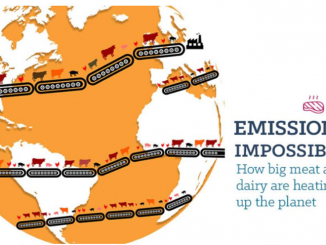 A new report by IATP and GRAIN out this week highlights the devastating impact of the meat and dairy giants on the environment. If GHG emissions from this sector continue as predicted, the Paris Agreement [...]
A new report by IATP and GRAIN out this week highlights the devastating impact of the meat and dairy giants on the environment. If GHG emissions from this sector continue as predicted, the Paris Agreement [...] -
 What are the implications – on the farm, in the region, the EU and globally – of the ever-increasing production milk production in the EU? Stuart Miekle explores. […]
What are the implications – on the farm, in the region, the EU and globally – of the ever-increasing production milk production in the EU? Stuart Miekle explores. […] -
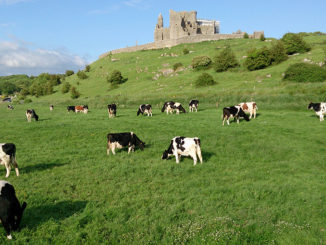 What are the viability and sustainability issues with milk in two parts of Europe quite far from each other – Ireland and Romania? Stuart Miekle has spent many years in both places, working with dairy [...]
What are the viability and sustainability issues with milk in two parts of Europe quite far from each other – Ireland and Romania? Stuart Miekle has spent many years in both places, working with dairy [...] -
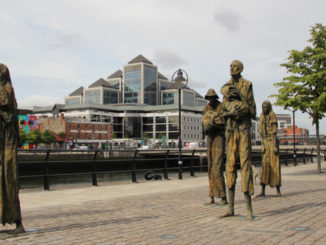 This long read by Frank Armstrong gives a background into what he calls the livestock industrial complex. Part history, part contemporary agri-food overview, part health and environmental case and part personal note, this article is [...]
This long read by Frank Armstrong gives a background into what he calls the livestock industrial complex. Part history, part contemporary agri-food overview, part health and environmental case and part personal note, this article is [...] -
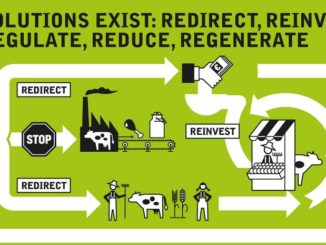 Big Meat & Dairy’s Supersized Climate Footprint and an intro to what we can do about it. In infographics via IATP, Grain and Boell. […]
Big Meat & Dairy’s Supersized Climate Footprint and an intro to what we can do about it. In infographics via IATP, Grain and Boell. […] -
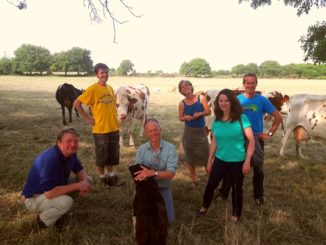 How can we get young people back onto the land, into rural areas and contributing to local culture and the local economy? There are many routes. Here’s one approach a couple who make cheese have [...]
How can we get young people back onto the land, into rural areas and contributing to local culture and the local economy? There are many routes. Here’s one approach a couple who make cheese have [...] -
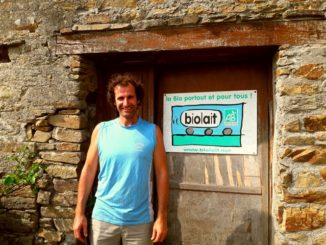 Farms have to be viable economically to survive and indeed thrive. Nevertheless, as the years pass, it’s worth thinking about how the farming life is lived. Stress, workload, debt – how do these impact on [...]
Farms have to be viable economically to survive and indeed thrive. Nevertheless, as the years pass, it’s worth thinking about how the farming life is lived. Stress, workload, debt – how do these impact on [...] -
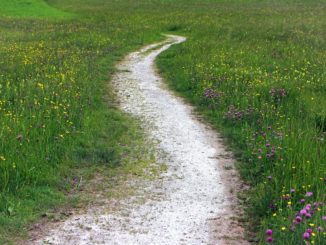 A number of organisations made submissions to the CAP consultation, which closed last week. Here we outline three differing ones – one from public health, one from farming and one, which we devote more space [...]
A number of organisations made submissions to the CAP consultation, which closed last week. Here we outline three differing ones – one from public health, one from farming and one, which we devote more space [...] -
 The organic dairy sector in France has significant differences – but also some commonalities – with the conventional dairy sector. Rising consumer demand, producer organisations, and regional feed crop supply are among the differences – [...]
The organic dairy sector in France has significant differences – but also some commonalities – with the conventional dairy sector. Rising consumer demand, producer organisations, and regional feed crop supply are among the differences – [...] -
 In his second contribution to this #MilkCrisis debate, Alan Matthews considers contributions thus far and also the recent development of EU-wide voluntary reductions as part of a €500 million package. […]
In his second contribution to this #MilkCrisis debate, Alan Matthews considers contributions thus far and also the recent development of EU-wide voluntary reductions as part of a €500 million package. […] -
 Silvia Däberitz, managing director with the European Milk Board, gives us their second article in our #MilkCrisis debate. In this she critiques some of the suggestions so far for dealing with the crisis, while emphasising [...]
Silvia Däberitz, managing director with the European Milk Board, gives us their second article in our #MilkCrisis debate. In this she critiques some of the suggestions so far for dealing with the crisis, while emphasising [...] -
 Continuing with our #MilkCrisis debate series, this interview with Aurélie Trouvé, agricultural economist, focuses on the voluntary market control measures announced in March. Trouvé also uses this interview to deal with broader issues of voluntary [...]
Continuing with our #MilkCrisis debate series, this interview with Aurélie Trouvé, agricultural economist, focuses on the voluntary market control measures announced in March. Trouvé also uses this interview to deal with broader issues of voluntary [...] -
 In the third in our milk crisis and farm income debate series, Alan Matthews suggests that supply management is not the way to improve price and income. […]
In the third in our milk crisis and farm income debate series, Alan Matthews suggests that supply management is not the way to improve price and income. […] -
 In the second installment of our farm income and diary crisis debate, Silvia Däberitz, managing director of the European Milk Board (EMB) tells us about how a Market Responsibility Programme could work. […]
In the second installment of our farm income and diary crisis debate, Silvia Däberitz, managing director of the European Milk Board (EMB) tells us about how a Market Responsibility Programme could work. […] -
 ARC2020’s next debate will be on the collapse in farm incomes, including in particular the milk price collapse. The causes, the consequences and most importantly the ways out of the current untenable situation will be [...]
ARC2020’s next debate will be on the collapse in farm incomes, including in particular the milk price collapse. The causes, the consequences and most importantly the ways out of the current untenable situation will be [...] -
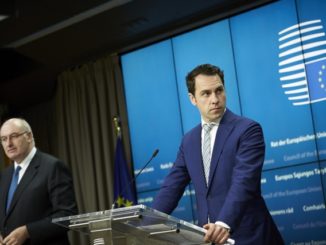 AGRIFISH Council Meeting Increases Diary Intervention and Introduces State Aid of E15000 per farmer. […]
AGRIFISH Council Meeting Increases Diary Intervention and Introduces State Aid of E15000 per farmer. […] -
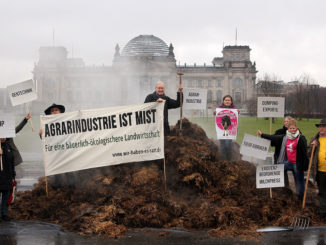 Europe’s strongest economy is seeing its farming sector decimated. At an incredibly rapid rate, both the number of farmers and the income of those left farming is nose diving. Why is this happening and what [...]
Europe’s strongest economy is seeing its farming sector decimated. At an incredibly rapid rate, both the number of farmers and the income of those left farming is nose diving. Why is this happening and what [...] -
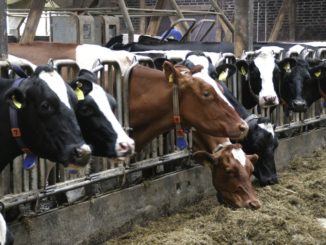 The European Milk Board calls for a European Union that acts in favour of the common good and well-being of its citizens and shows solidarity while upholding peace and harmony. EU agricultural policy cannot be [...]
The European Milk Board calls for a European Union that acts in favour of the common good and well-being of its citizens and shows solidarity while upholding peace and harmony. EU agricultural policy cannot be [...] -
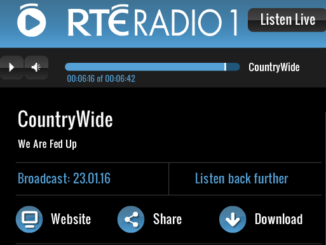 Wir Haben Es Satt (WHES2016) made the news in Ireland this year, via ARC2020’s Oliver Moore. Have a listen to what he said….. […]
Wir Haben Es Satt (WHES2016) made the news in Ireland this year, via ARC2020’s Oliver Moore. Have a listen to what he said….. […] -
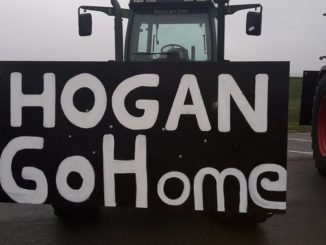 EU farm incomes are down, but are plummeting in European powerhouse economy Germany. […]
EU farm incomes are down, but are plummeting in European powerhouse economy Germany. […] -
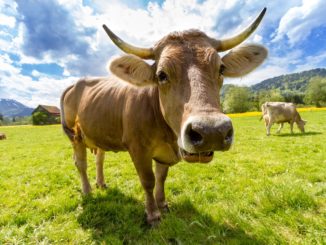 plummeting prices despite the all the signals and scientific evidence have made the Commissioner’s position untenable, the EMB claim. […]
plummeting prices despite the all the signals and scientific evidence have made the Commissioner’s position untenable, the EMB claim. […] -
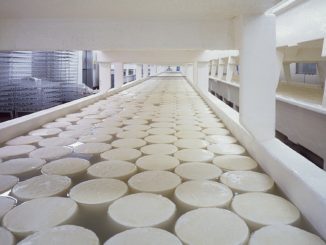 A broad alliance of German organisations has published an open letter to German Minister of Agriculture Christian Schmidt. […]
A broad alliance of German organisations has published an open letter to German Minister of Agriculture Christian Schmidt. […] -
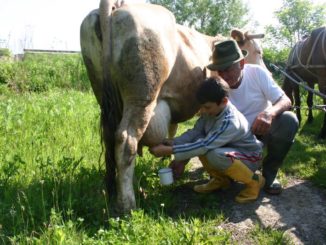 Romanian milk farming: from one crisis to another. […]
Romanian milk farming: from one crisis to another. […] -
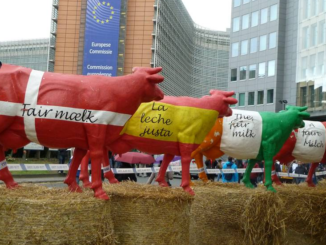 Commission announces contentious €500m aid package for dairy, pork ARC2020 […]
Commission announces contentious €500m aid package for dairy, pork ARC2020 […] -
 ARC2020 exclusive: Part one two by André Pfimlin, translated from French by ARC2020’s Samuel Feret and Peter Crosskey. In part one, Andre outlines the milk crisis: part two, to be released tomorrow morning, suggests solutions. [...]
ARC2020 exclusive: Part one two by André Pfimlin, translated from French by ARC2020’s Samuel Feret and Peter Crosskey. In part one, Andre outlines the milk crisis: part two, to be released tomorrow morning, suggests solutions. [...] -
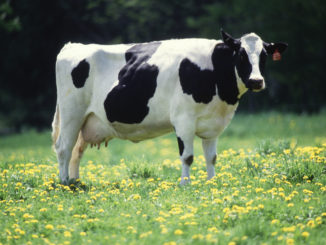 The end of milk quota was greeted with glee in Ireland: that’s changing as prices slump. […]
The end of milk quota was greeted with glee in Ireland: that’s changing as prices slump. […] -
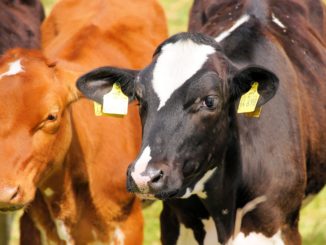 Farmer protests are spreading around Europe, with six roads blockaded in France, along with food trucks carrying imported produce turned back. The UK is now seeing protests congest motorways there too. The A50 road protest has focused [...]
Farmer protests are spreading around Europe, with six roads blockaded in France, along with food trucks carrying imported produce turned back. The UK is now seeing protests congest motorways there too. The A50 road protest has focused [...] -
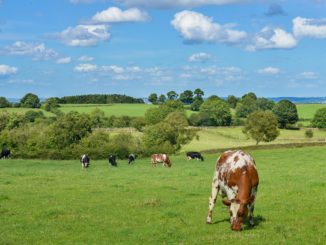 While global issues inevitably influence milk price and dairy farmer viability, the end of the EU’s milk quota regime has made it especially challenging for small to medium sized dairy farmers to survive. Milk prices [...]
While global issues inevitably influence milk price and dairy farmer viability, the end of the EU’s milk quota regime has made it especially challenging for small to medium sized dairy farmers to survive. Milk prices [...] -
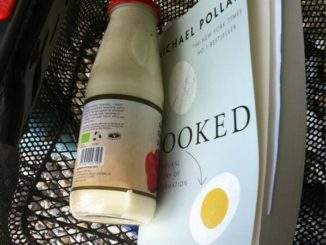 Guest post by Siobhan o Donoghue of Uplift The milk quota system across Europe came to an end on April 1st. Listening to the dominant media and political commentary in Ireland you could be forgiven [...]
Guest post by Siobhan o Donoghue of Uplift The milk quota system across Europe came to an end on April 1st. Listening to the dominant media and political commentary in Ireland you could be forgiven [...] -
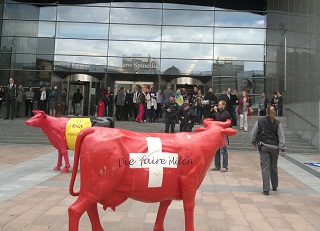 After 1 April, the European milk market will have no operating safety net. For the dairy farmers in Europe this means more, worse crises and falling prices in future. Many of them will have to [...]
After 1 April, the European milk market will have no operating safety net. For the dairy farmers in Europe this means more, worse crises and falling prices in future. Many of them will have to [...] -
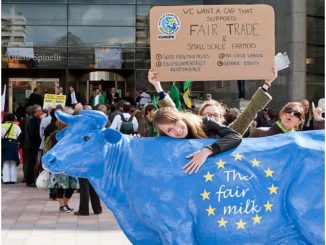 By Laetitia Nourry, Eco Ruralis intern on Food Chains Campaign 30 years after its setting up, the milk quota system is coming to its end. Europe is returning to unlimited production of milk where the [...]
By Laetitia Nourry, Eco Ruralis intern on Food Chains Campaign 30 years after its setting up, the milk quota system is coming to its end. Europe is returning to unlimited production of milk where the [...] -
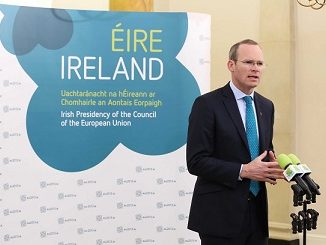 Increasing dairy herd also increases dairy GHG emissions, leading Irish NGO claims. […]
Increasing dairy herd also increases dairy GHG emissions, leading Irish NGO claims. […]

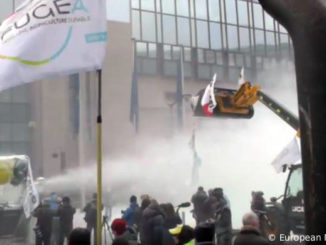
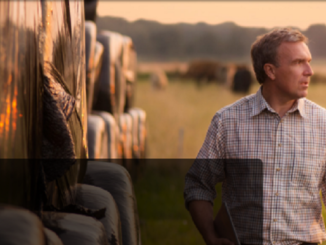
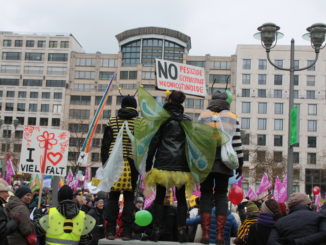
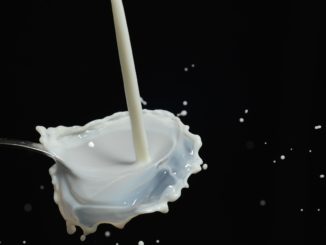
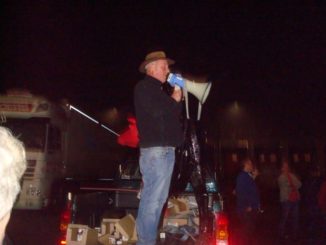


















































Be the first to comment